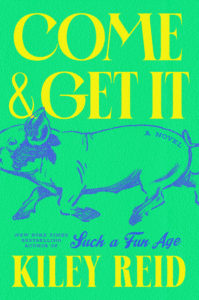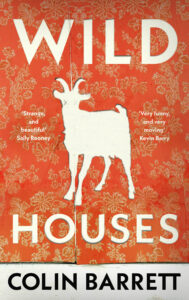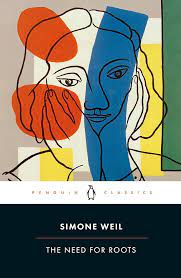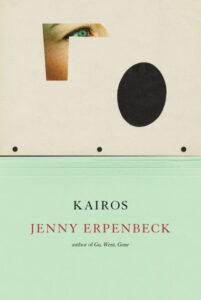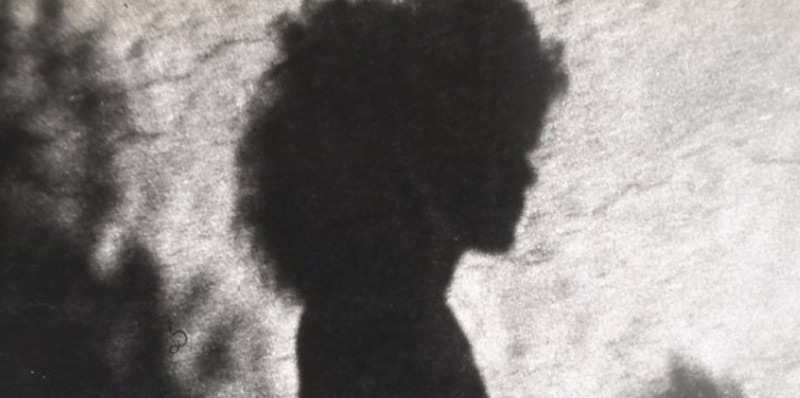
5 Book Reviews You Need to Read This Week
“She has found a way to tell a story that is artful, and humane, in the midst of disaster.”
Our five-alarm fire of fabulous reviews this week includes Julia May Jonas on Kiley Reid’s Come & Get It, Kevin Power on Colin Barrett’s Wild Houses, Raja Shehadeh on Isabella Hammad’s Enter Ghost, Becca Rothfeld on Simone Weil’s The Need for Roots, and Alexander Wells on Jenny Erpenbeck’s Kairos.
Brought to you by Book Marks, Lit Hub’s home for book reviews.
*
“…the story unfurls like a magic trick, its breeziness disguising an incisive and damning exploration of economics and ethics in America … Reid is a social observer of the highest order, knowing exactly when a small detail or beat of dialogue will resonate beyond the confines of the scene … She never judges her characters. Her world, like the real one, is populated by people whose shortsightedness lives alongside good intentions … With her perceptive eye and ear, Reid imbues her novel with the stuff, literally and figuratively, of life. Her characters define themselves by what they have consumed, what they covet and how they react to what other people have. Does Reid criticize them for it? Absolutely not. Her characters feel unique, often lovable—and always human. Money drives them in the way it drives us all, and that’s the beauty (and the terror) of Reid’s point. With her remarkable examination of American monoculture—from fast food to pop culture to handed-down ideals—she tells a story about economics that’s neither poverty porn nor finance fantasy. Instead, it’s about the hows and whys of everyday consumerism and the insidious toll it takes on our lives … I found myself thinking of certain writers who have, over the years, elected themselves as ‘capital C’ Chroniclers of contemporary America. With this book, Reid demonstrates that she deserves a place in the running.”
–Julia May Jonas on Kiley Reid’s Come & Get It (The New York Times Book Review)
“What if you took the generic framework of the crime caper and filled it up with the pathos of ordinary lives? Brought it as close as you possibly could to the textures of the real? The crime caper: think the novels of Elmore Leonard and Carl Hiaasen. Psychopathic gangsters proving surprisingly articulate or sentimental. Slapstick brutality. Wiry plots. In affective terms, the crime caper is a close cousin of the formal satire: what fools these mortals be! Colin Barrett’s first novel wears the outward dress of a crime caper, but it is not a satire; it is not even satire’s close cousin. It is, rather, a delicate and beautiful book about the lives of lonely people on the fringes of small-town gangsterdom … a house, of course, can’t be truly wild, because houses stay where they are, as Barrett’s characters—abandoned, bereaved, trapped by circumstance—perforce, and at great cost, stay where they are … Barrett is obviously a writer who believes in the contained, achieved thing, in the manuscript nursed towards perfection over long months and years. He is, in other words, a Flaubertian—he doesn’t do politics or economics or social commentary or even, really, psychology (though he is gifted with a spooky empathy for people in pain). The Flaubertian novelist applies the most refined style to the grey old ordinary world, generating a startling tension between the fineness of the perception and the coarseness, or the ostensible unremarkableness, of the thing perceived. Wild Houses is echt-Flaubertian in this sense. It hews to the power of word-choice to catch reality in its subtle nets.”
–Kevin Power on Colin Barrett’s Wild Houses (The Irish Times)
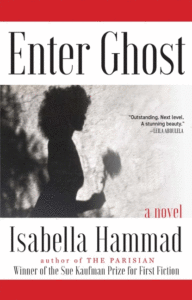
“In the novel, Palestinians from both sides of the border come together to stage a production of Hamlet in the West Bank. The protagonists find themselves united in many ways: They are often stirred up by the humiliations imposed on them by Israeli soldiers. They are worried about the same arbitrary acts of dispossession, and they all have to negotiate a complex emotional terrain with friends and family on both sides of the border. As I approached Hammad’s novel, I was also curious to see whether the parts that take place in Ramallah, where I live, rang true. And on all these accounts, I was not disappointed. Hammad is not only a talented novelist; she is also a rigorous researcher, and she paints an authentic picture of Palestinian life, whether it takes place inside Israel or in the West Bank … At every point, as Hammad details the exhausting day-to-day struggles that Palestinians have to endure, she finds humanity and complexity in their responses. Contrary to what one might expect, the bloody events taking place in the West Bank do not prevent the theater troupe from going ahead with their performance of Hamlet. In the oft-heard justification by Palestinians trying to keep cultural activities alive despite the turmoil taking place all around them, Mariam says, ‘If we let disaster stand in our way we will never do anything. Every day here is a disaster.’ Such a statement could be made about Hammad’s novel, too: She has found a way to tell a story that is artful, and humane, in the midst of disaster.”
–Raja Shehadeh on Isabella Hammad’s Enter Ghost (The Nation)
“‘I don’t know whether there are any moral saints,’ the philosopher Susan Wolf once wrote. ‘But if there are, I am glad that neither I nor those about whom I care most are among them.’ Dissolute and depraved as I am, I agree that there is no one less sympathetic than those icy enigmas, the saints. They attract us for the same reason that they repel us: because they are both more and less than human. The French writer, mystic and philosopher Simone Weil was rumored to be a saint—and regarded by almost everyone who knew her as an alien form of life … Weil was a lifelong connoisseur of deprivation, and she freely admitted that her ultimate aim was nothing less than the dissolution of her personality … Her idealism and inflexibility are on full display in The Need for Roots, the vexing political-treatise-cum-mystical-tract that joins the ranks of the Penguin Classics this month. It is a measure of Weil’s outrageous naiveté that this strange and vatic text is what she produced when she was assigned to write a report for the Free French offices about how the country might recuperate after the war. Unpolished and unedited at the time of Weil’s death, the results were undoubtedly useless for their intended purpose, but Weil was too fiercely idiosyncratic to write anything boring or wholly bereft of insight. Her last work is certainly a classic, but a coherent and convincing argument it is not.”
–Becca Rothfeld on Simone Weil’s The Need for Roots (The Washington Post)
“On the one hand, history; on the other, a love story. How do you narrate these two things together, without falling into cheap allegory or the ahistorical kitsch of ‘lovers against the world’? And more to the point: Why would Erpenbeck—a past-obsessed star novelist, a restless innovator and bricoleuse of narrative forms—suddenly reach for romance when taking on the one historical event that means the most of her (and the one that, presumably, gets her into the most heated arguments with fellow members of Germany’s smugly anticommunist literary establishment)? … in Kairos, history and love are made to share a flat. Each has their own thing going on, but they split the chores. Erpenbeck’s novel consists of two breakups: one romantic and one political. It narrates the end of an affair between a young East German woman, Katharina, and the much older Hans, covering the period before, during, and just after the collapse of the GDR. The lovers’ relationship, like the GDR, is obsessed with the story of its beginning, and with the high utopian hopes and ideals it once seemed to promise. And, again like communism on German soil, its collapse leaves behind a narrative ruin … Kairos conjures his social world in painstaking detail. To anglophone readers whose sense of the GDR comes from nightmarish one-tone kitsch, this insight into a lost cultural scene is one of the novel’s most interesting features. But despite Erpenbeck’s dedication to recording this socialist milieu for posterity—a dedication tinged, perhaps, with longing—the novel treats the whole thing as always-already fallen and unrecoverable.”
–Alexander Wells on Jenny Erpenbeck’s Kairos (The Baffler)
Book Marks
Visit Book Marks, Lit Hub's home for book reviews, at https://bookmarks.reviews/ or on social media at @bookmarksreads.










